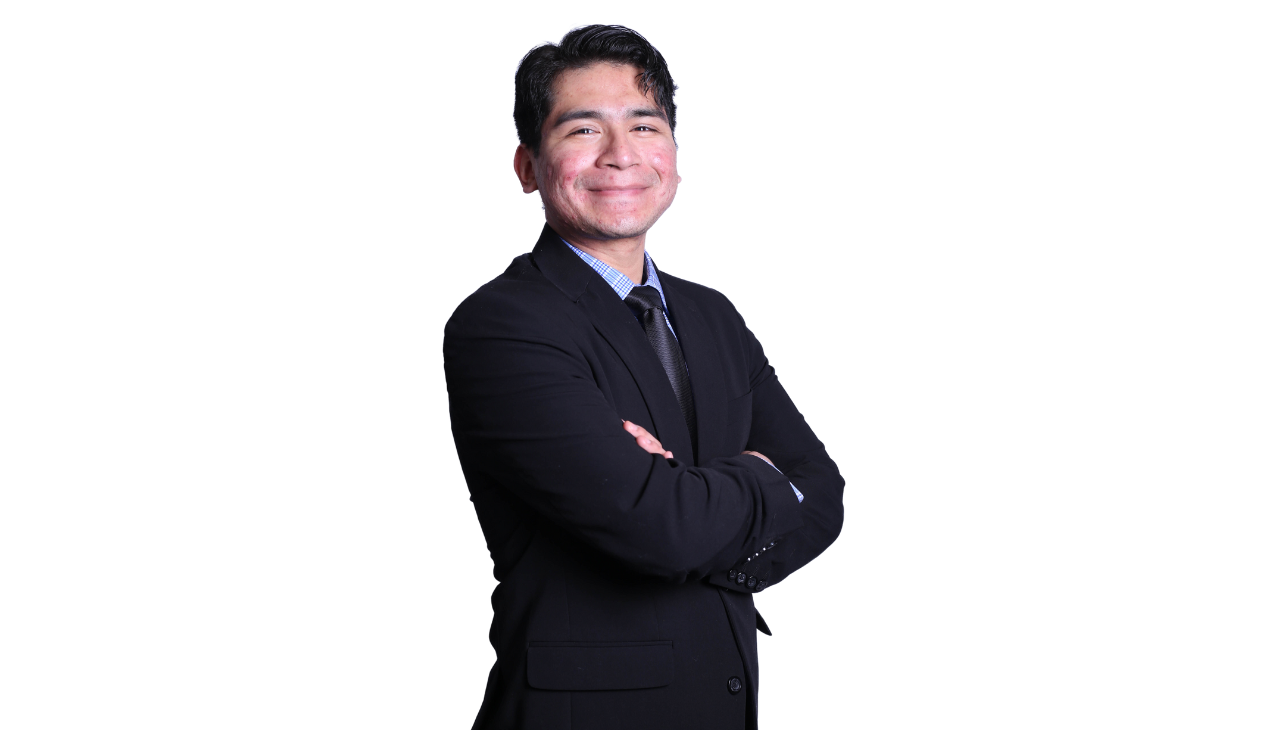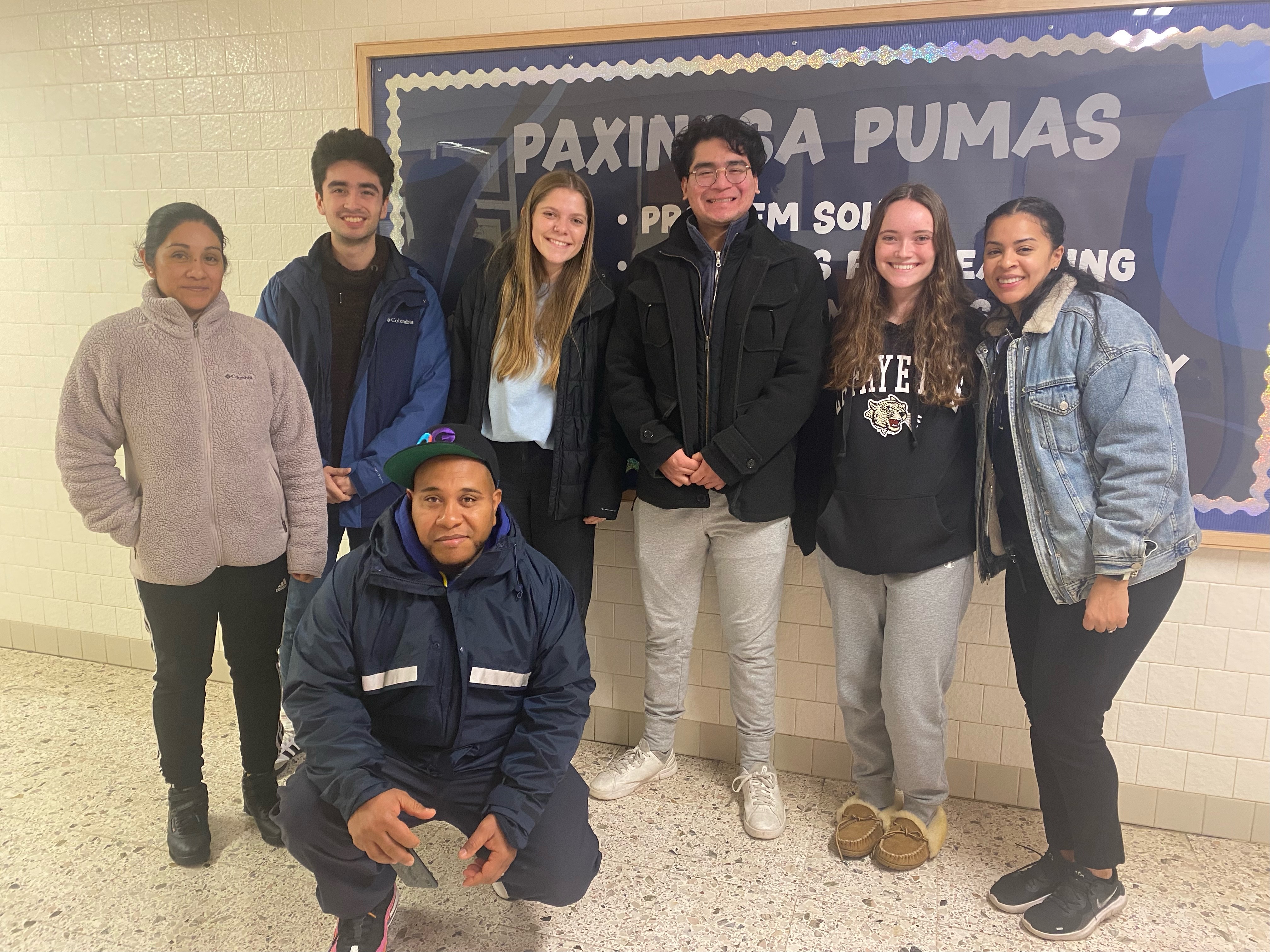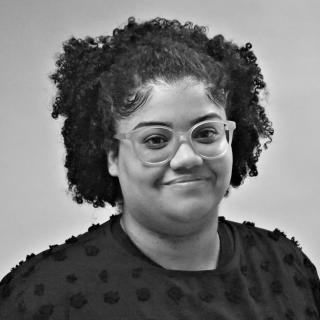
Lafayette Engineering student gives back to the Latino community
Following in the footsteps of his predecessor, Alexander Alvarez is using “Construyendo Puentes” to teach Latino parents ESL.
Alexander Alvarez is a senior majoring in Civil Engineering with a minor in Psychology from Lafayette College. He is a DEIJ committee member of the Engineering Student Council (ESC), president of the Society of Hispanic Professional Engineers (SHPE), program coordinator for “Construyendo Puentes”, and an Engineering Peer Mentor at Lafayette College.
AL DÍA had the opportunity to speak with Alvarez regarding his collegiate life and his work in the Latino community as a volunteer English as a Second Language (ESL) educator.
Life in East Harlem
Alvarez was born and raised in East Harlem, New York City— living in a two-bedroom apartment with nine additional individuals — an older brother, two younger sisters, mother and father, uncles, and aunts. As a fluent English speaker, his parents often rely on him to translate for the family, sharing that his "always been someone who in some way had to be the adult at a young age, and it was hard for me,” a frequent and painful reality for immigrant children, that because of their age can grasp the language quickly, becoming the spokesperson for the family.
However, when he was a child, his family migrated back to Mexico, causing Alvarez to become fluent in Spanish at a native level and forget English in its entirety.
Although he learned the language again, it did not stop his parents from seeking his support and translation guidance when needed.
“He couldn’t afford tuition”
The first-generation student shares that his mother was the first to attend college, but the high tuition costs, compelled her to leave her dreams of higher education and still tried to balance the demand of paying tuition for her children.
His older brother was the second member of his household to attempt to pursue a college degree; unfortunately was unable to afford tuition and withdrew from the program and college.
“I was the first to get a full ride to college,” he explained. “It was just a lot of pressure on me... I’m going to stick with all four years. I need to make sure I do whatever I can to make it. To do the best I can.”
But Alvarez faced many challenges in high school that almost affected his chances of attending college. When he was in eighth grade, his parents decided to apply for citizenship— unknowingly hiring a fraudulent lawyer that took all their money— causing a wedge between the family dynamics— arguments and fighting, that Alvarez had to make sure to diffuse and reassure his sisters they were not the reason for the conflict and that everything will get better.
“I remember just feeling in a way guilty,” he admits. “I was going to this kind of prestigious high school, and they are going to have to pay a lot of money to make up for the lawyer and also to make the tuition.”
Under those circumstances and after revealing the hardship he was facing at home to a guidance counselor, the high school senior was able to receive additional tutoring, extensions, and additional assistance, as needed— his teachers were able to push him outside of his comfort zone and become more engaged in classroom discussions—a process that unearthed his potential to lead, as he later shares.
Welcomed at Lafayette College
Alvarez was able to attend Lafayette College through Our Beloved Community (OBC), which grants underrepresented students the opportunity to envision how they can be part of a vibrant, caring, diverse community at Lafayette. He adds that the college exposure made him feel part of the college, noting that “walking in, all the directors were helping me out, and just making sure I always felt welcomed.”
Alex is a DEIJ committee member for the Engineering Student Council (ESC), a formal leadership structure for student organizations within the Engineering Division, which “strives to provide an inclusive environment for all to learn, develop and thrive.” He focuses on ways to help the underrepresented communities at Lafayette and get students connected with other clubs.
“I’m closing the gap,” he said. “Just by being the bridge and then just putting our ideas together. We are helping efficiently.”
His involvement does not stop there. He is the chapter president of the Society of Hispanic Professional Engineers (SHPE), a role he came to possess as the sole member during the pandemic. However, during a regional leadership conference, he got the opportunity to meet the person who founded SHPE at Lafayette; her words of encouragement propelled Alvarez to become president of the chapter.
“I was able to grow that whole organization from one member to 30 members because I was very passionate about it,” he assures. “That compliment that the founder gave me, she believed in me, even though she does not know who I am, she believed in me.”
“I started stepping up more, and because of that, many first-years started coming to me for help,” added Alvarez.
His success in growing the chapter and his ability to retain members is that “I acknowledge that I do not have all the answers,” sharing how he struggled with his grades, especially the first two years, where his scores did not reflect his work ethic. Despite these setbacks, he persevered and improved his grades for the next two years. The soon-to-be graduate reflects on his trajectory thus far, sharing that he is "not used to giving up easily,” assuring that he is "used to failing and then learning and then doing better.”
He credits his major in civil engineering and a minor in psychology with being able to learn from two distinct fields, emphasizing “the two fields taught me how to build the mindset and build up from the physical side.”
“Not really civil engineering”
RELATED CONTENT
Alex traveled to Texas for an internship installing solar panels and wiring. Although he mentions this was “not really civil engineering,” he was accompanied by some of his friends from SHPE and the science field.
With graduation approaching, he reflects on the various projects he has worked on: Steel Bridge Lab Competition, Transportation Engineering project, Micro Food Pantry, and Structural Steel Building Design, which is still ongoing.
His capstone consists of creating and presenting a 3D model to the engineering company that made the building and the new engineering company contemplating doing something to the building. He will discuss the best design, materials needed, the issues he encountered, and how to resolve them.
“I am expected to graduate this May, which gives me chills because I am doing it first, and it creates a path for my sisters.”

Construyendo Puentes
"Construyendo Puentes" was created by a college student passionate about the Spanish language and aspired to become an educator—providing Spanish-speaking student volunteers to participate in the program, which partners with Paxinosa Elementary School to assist Spanish-speaking families ESL.
Alvarez was one of the first assistants of the program and took over the management of the program after the founder graduated.
“I took over the program and started teaching English by incorporating listening and grammar exercises,” commented Alvarez.
Following in the shoes of his predecessor, Alex admits the program is making an impact in the community— using his language skills to translate when needed and ensuring the parents are pronouncing the words correctly and enhancing their vocabulary beyond basic conversation skills.
The success, he says, is due to the Spanish- speaking students volunteering their time and contributing to his efforts to bridge the gap within the Spanish-speaking community. He notes Bruno and Virginia, two of his friends, who are teaching lessons to the parents and ensuring Alex's diction is correct during the lessons.
Final thoughts
“You are going to fail, but that does not mean you are a complete failure,” he assures students. “Just know that sometimes many projects will go through many failing phases, but it is just a phase.”











LEAVE A COMMENT:
Join the discussion! Leave a comment.